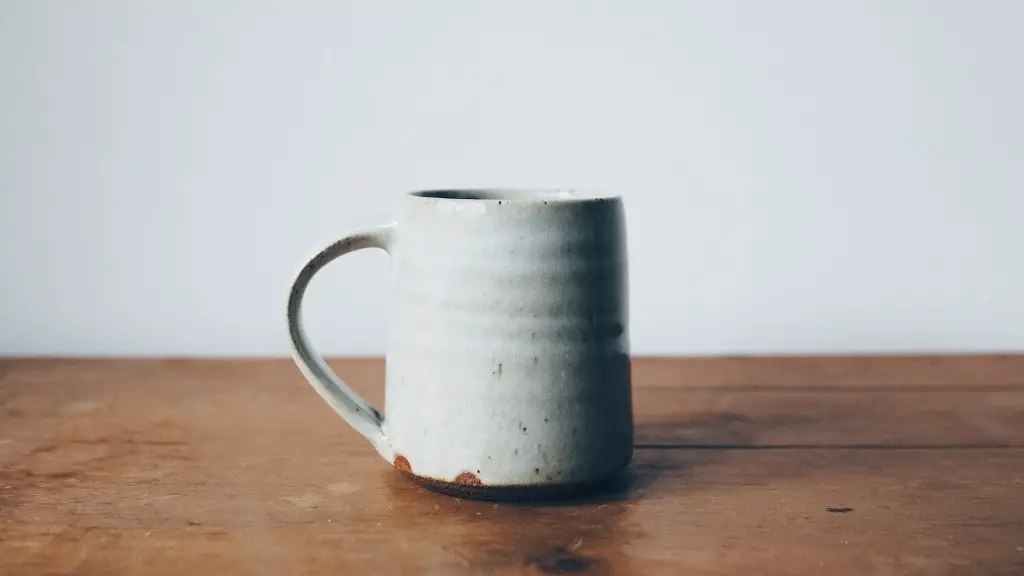Health Risks
Drinking too much coffee can cause a variety of health risks, including kidney problems. Caffeine is a stimulant, a central nervous system stimulant that increases alertness, focus, and energy levels. It can also cause dehydration, which can subsequently lead to kidney and bladder issues. Research has suggested that excessive caffeine intake has been linked to an increased risk of kidney stones, urinary tract infections, and interstitial cystitis.
Kidney stones can occur when a buildup of waste products, such as uric acid, calcium oxalate, or calcium phosphate, crystallize in the kidneys in large amounts. These crystals can damage the inner workings of the kidneys and can lead to scarring and complications, including chronic kidney damage and even kidney failure. The risk for kidney stones increases with excessive caffeine consumption and the onset of other health risks.
Research Findings
In a study published in the American Journal of Kidney Diseases, researchers have found that drinking more than four cups of coffee per day may increase the risk of chronic kidney disease. The study followed more than 5,500 patients with existing chronic kidney disease, and tracked their consumption of coffee, tea, and other caffeinated beverages. Afterward, it was concluded that drinking more than typical amounts – four or more cups of coffee per day – was associated with an elevated risk of developing chronic kidney disease. The study also highlights the importance of knowing one’s own caffeine tolerance, as individuals may develop kidney problems due to their own unique sensitivity to the stimulant.
A separate study published in the journal Kidney International found that drinking more than four cups of coffee per day was associated with a higher risk for cystinuria, which is a mineral abnormality that can lead to kidney stones. Although the study indicated that consuming between one and four cups of coffee per day did not increase the risk of cystinuria, drinking more than four cups was associated with an elevated risk. The study concluded that regular and excessive coffee consumption may increase the risk for kidney stones.
Coffee Intake Recommendations
Most experts agree that enjoying coffee in moderation is safe for most people, and that it can even provide certain health benefits. But it is important to keep track of your own individual caffeine intake, and ensure that you are following the recommended guidelines. The World Health Organization (WHO) recommends that adults limit their caffeine intake to 400 milligrams per day, which is equivalent to about four cups of coffee, depending on the strength of the coffee.
The WHO also recommends limiting the intake of other caffeinated products, such as energy drinks, soda, and tea. If you are pregnant, breastfeeding, or have a heart condition, it is recommended that you consult your doctor before consuming any caffeinated products, as the additional caffeine may cause adverse side effects.
Coffee Alternatives
If you are worried about the potential health risks associated with regular coffee consumption, there are many alternatives that you can choose from. While these alternatives may not contain caffeine, they often offer similar health benefits, such as increased energy, antioxidants, and vitamins. For example, herbal teas, matcha, and golden milk all naturally contain caffeine-free ingredients that can provide a boost of energy, while also providing antioxidants and other health benefits.
Even decaffeinated coffee can provide some potential health benefits, as it still retains some trace amounts of caffeine, and offers the same flavor and aroma of regular coffee without the associated risks. Decaffeinated coffee can even provide a lower risk for kidney stones, as long as it is consumed in moderation and the recommended amount.
Potential Benefits of Coffee
Despite the health risks associated with drinking too much coffee, it can also provide potential health benefits. For example, regular coffee consumption is associated with a lower risk for certain diseases, such as diabetes and heart diseases – as long as it is consumed in moderation. Coffee also contains antioxidants, which can help protect your body from free radical damage and slow the aging process, while also providing additional vitamins and minerals that can be beneficial for overall health.
Coffee can also improve mental health, by boosting energy and focus, and providing a pleasant and enjoyable experience. Additionally, it can even boost physical performance, as caffeine can increase endurance and alertness. Caffeine also helps to stimulate the release of endorphins, which can improve a person’s overall mood and reduce stress levels.
Coffee & Stress
Coffee can also be beneficial for managing stress levels, as the stimulant can help to lift spirits and reduce stress levels. It can also provide an instant energy boost, which can be helpful for staying alert and focused. The comforting aroma and flavor of coffee can be soothing, which in turn can help alleviate stress levels. However, it should be noted that too much coffee can have a negative effect. Too much caffeine can cause anxiety, restlessness, irritability, and difficulty sleeping – all of which can further contribute to increased stress levels.
In addition to limiting coffee consumption, people who are dealing with stress should consider other methods of relaxation, such as meditation, exercise, or spending time in nature. These activities may be more effective in managing stress levels than relying solely on coffee consumption.
Coffee & Lifestyle
In addition to limiting coffee consumption, people who are looking to reduce their risk of kidney problems should also consider making lifestyle changes in order to reduce stress levels, maintain a healthy weight, and increase their physical activity. Eating a balanced and nutritious diet that is low in salt and processed foods can help reduce the risk for kidney stones. Additionally, reducing alcohol consumption and avoiding smoking can help to reduce the risk for other health issues that can cause or worsen kidney problems.
Drinking enough water throughout the day is also an important component of maintaining healthy kidneys. The National Institutes of Health recommend that people drink at least 2 liters – or 8 cups – of water per day in order to flush out toxins and waste from the body, as well as to replenish lost fluids. This can help to reduce the risk for kidney stones and other kidney-related problems.
Alternative Treatments
For those who are looking to reduce their risk of developing kidney problems, there are several natural remedies and treatments that can be beneficial. For instance, consuming foods and drinks that are high in antioxidants and other nutrients can help protect against kidney damage, while also providing other health benefits. For example, drinking apple cider vinegar, cranberry juice, and green tea can help flush out toxins, prevent bacteria from attaching to the bladder, and reduce inflammation in the kidneys.
Getting enough restful sleep and incorporating stress-relieving activities can also be beneficial, as they can help to reduce stress levels and improve overall well-being. Additionally, certain essential oils, such as lavender and juniper, can be beneficial for improving kidney health. Finally, acupuncture, massage therapy, and traditional Chinese medicine may also be beneficial for improving kidney health and reducing inflammation.




